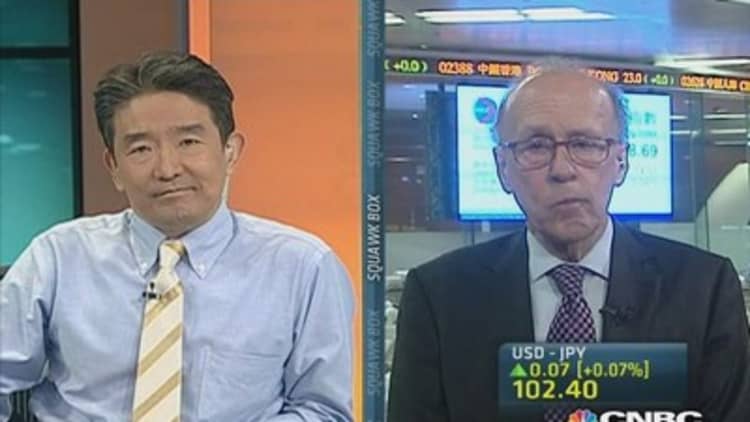Goldman Sachs has become the latest bank to downgrade its gross domestic product (GDP) growth forecast for China, noting the world's second largest economy faces a "bumpy road ahead."
The bank lowered its 2014 forecast to 7.3 percent from 7.6 percent late Wednesday. It also cut its 2015 outlook to 7.6 percent from 7.8 percent.
"Both trade and consumption - factors that we had expected to provide positive support to growth this year - disappointed in the first two months of 2014, relating to the anti-corruption efforts, which affected consumption, and the soft DM (developed market) recovery," economists led by Li Cui, managing director, China Macro Research at the bank wrote in a note.
"The exit of overcapacity sectors, along with the emerging default cases in the related sectors, are negatively impacting growth in the near term but are necessary from a longer-term perspective by allowing proper signals to dampen wasteful investment," they added.
A number of banks including Bank of America Merrill Lynch (BofAML), Barclays and Nomura have lowered their growth projections for the mainland economy over the past week.
(Read more: Fresh worries overChina prompt slew of downgrades)
Many economists believe the government will tolerate slightly lower growth than the official 7.5 percent target this year after Premier Li Keqiang said last week that there was some "flexibility" around the target.
While Goldman forecasts 7.3 percent growth in the first quarter, it doesn't expect the economy to slow much further beyond this level for the remainder of the year. It sees growth at 7.5 percent, 7.3 percent and 7.2 percent for the second, third and fourth quarters, respectively.
The bank argues that the drag on growth from the anti-corruption campaign to eliminate lavish spending by officials and pollution control measures will lessen in the coming quarters.

Furthermore, it says easing in financial conditions and policy reforms - for example allowing more participation of private capital in previously restricted areas - could support the economy.
Finally, it notes that a recovery in exports driven by demand out of developed economies will be a positive.
"Downside risks include [a] muted global recovery, further drags of overcapacity sectors on investment, and a sharper-than-expected slowdown in property activities," Li said.
(Read more: Default risks trigger fresh fears over China property crisis)
"The main upside risks are a more-robust-than-expected policy easing and a bigger-than-expected near-term impact from supply-side reforms (such as the launch of the further opening up of state-owned enterprise sectors to private enterprises and a boost to low-end consumption from urbanization initiatives)," she added.
Goldman says barring major further downside growth surprises or a significant policy shift, it does not expect a cut to the reserve requirement ratio (RRR) for banks. And it sees continued and gradual deceleration of money and credit growth.
(Read more: China central bank ready to act if growth falters)
Expectations of monetary easing have risen recently following reports that China's central bank is prepared to take its strongest action since 2012 to loosen policy if economic growth slows further.
—By CNBC's Ansuya Harjani. Follow her on Twitter @Ansuya_H


